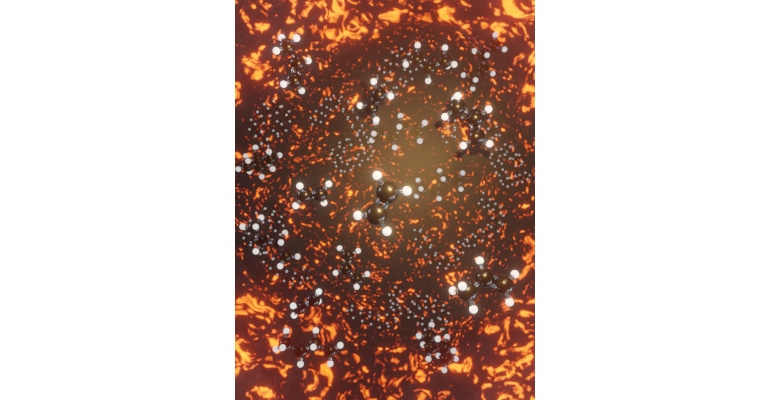New Process Could Advance Plastic Waste Recycling Through Pyrolysis
Researchers have optimized the low-cost process of pyrolysis to produce useful chemical products from discarded plastic products.
August 7, 2023

Researchers have developed a process that may help advance plastic waste recycling. A team of scientists from the University of Pittsburgh have optimized a low-cost process called pyrolysis to chemically recycle waste plastics into high-value chemical products.
Specifically, the team—led by Giannis Mpourmpakis, associate professor of chemical and petroleum engineering—developed a new framework that can optimize the results they can produce from the process.
Their effort is a valid one. Even though plastic has been useful as a lightweight and low-cost material option to glass or metal in many use cases, it's become a huge pollution problem, the researchers said. It's currently estimated that about 380 million metric tons of plastic are produced every year. However, because plastic recycling is challenging and expensive due to the material’s complex molecular structure, only about 9% of all plastic waste is recycled and about 12 percent is incinerated. That means that the rest is discarded in landfills and the natural environment.
“The production of plastics is expected to keep increasing, so it’s essential that we find and perfect ways to recycle and reuse plastics without harming the environment,” said Mpourmpakis in a post on the Pitt Swanson School of Engineering virtual newsroom.
How They Optimized Pyrolysis
Though pyrolysis has already been developed on a commercial scale, it's necessary to optimize pyrolysis conditions to produce desired products. To do this, researchers typically use thermodynamic calculations based on what’s known as the Gibbs free energy minimization approach. However, it has a key drawback—the lack of thermochemical data can limit the accuracy of these calculations.
To overcome this, the Pitt researchers—Mpourmpakis and former Pitt postdoc Hyunguk Kwon, now a professor at Seoul National University of Science and Technology—developed a computational framework to accurately calculate the temperature-dependent thermochemistry of large and flexible molecules. The framework combines conformational search, DFT calculations, thermochemical corrections, and Boltzmann statistics.
The computational analysis offers a significant advancement in predicting temperature-dependent product distributions from plastic pyrolysis to guide future efforts to convert plastic waste into useful chemicals, the researchers said.
The resulting thermochemistry data can be used to predict the thermal decomposition profiles of octadecane, a model compound representing polyethylene. Once this is done, scientists can set about finding a way to further the processing of plastic pollution, Mpourmpakis said.
“The main challenge now is finding optimal operating conditions, given the starting and final chemical products, without needing to rely heavily on trial-and-error experimentation," he said.

Aiding the Future of Plastic Pollution
Researchers published a paper on their work in the American Chemical Society (ACS) Journal of Chemical Theory and Computation.
The proposed computational analysis offers a significant advancement in predicting temperature-dependent product distributions from plastic pyrolysis, the researchers said. It can guide future experimental efforts in chemical plastic recycling, enabling researchers to optimize pyrolysis conditions and increase the efficiency of converting waste plastics into valuable chemicals.
“This work … contributes to the development of sustainable waste management strategies and the reduction of plastic pollution, offering potential benefits for both the environment and society," Mpourmpakis said.
About the Author(s)
You May Also Like



